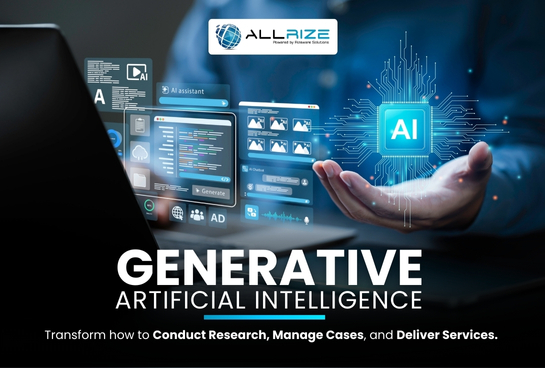According to recent surveys, 74% of lawyers are using artificial intelligence (AI) for legal work. This number is even higher in certain sectors, for example 87% of in-house lawyers report actively using AI tools for legal work. There’s no doubt that the use of AI, particularly generative AI (GAI) in the legal profession is transforming how lawyers conduct research, manage cases, and deliver services. However, the adoption of GAI, which has the ability to generate new content and opposed to simply performing tasks, brings ethical challenges that legal professionals must navigate carefully.
1. Confidentiality
Keeping client information confidential is one of the cornerstones of legal ethics. Not disclosing confidential information to a third party is relatively straightforward, but what about when that third party is a GAI tool? The American Bar Association (ABA) has weighed in on the matter, particularly with respect to self-learning GAI tools. Because GAI learns from prompts, there is a risk that the tool could later regurgitate confidential client information that an attorney put into the tool. Given this risk, the ABA has stated that “a client’s informed consent is required prior to inputting information relating to the representation into such a GAI tool.”
Generally, attorneys should establish and follow policies that ensure only generic information is being used in GAI prompts.
2. Competence
Lawyers must provide competent representation to clients which includes understanding the benefits and risks associated with technologies used to deliver legal services to clients. Lawyers do not need to be experts in new technologies; they can ordinarily achieve the requisite level of competency through self-study or consulting with an expert in the field. To ensure they are meeting the standard for competency, lawyers should spend time learning about the GAI tools that they plan to deploy in their practice.
The question of competency is also relevant when attorneys use GAI to draft legal documents. While GAI is becoming more sophisticated and accurate everyday, it is still prone to errors and occasional hallucinations, particularly when drafting legal documents. An attorney who fails to ensure that a GAI-generated document is complete and accurate may breach their duty of competency.
3. Communication
Attorneys have a duty to communicate with their clients, specifically to “advise the client promptly whenever the attorney has information to give which it is important the client should receive.” Additionally, lawyers must “reasonably consult with the client about the means by which the client’s objectives are to be accomplished.” These requirements naturally raise the question: do lawyers need to inform their clients about the use of GAI? It depends.
In some cases, attorneys may not need to disclose the use of GAI in a particular case. However, there are certain circumstances that do require attorney disclosure, including:
- When asked by a client how they conducted their work
- When the use of a GAI tool is relevant to the basis of a lawyer’s fee
- When the output of a GAI tool will influence a significant decision in the representation
Every case is different, and lawyers should consider whether the specific circumstances warrant disclosure, erring on the side of caution.
4. Fees
Attorney fees must be reasonable, and lawyers must communicate to a client the basis on which fees and expenses are charged. The ABA ethics rules are very clear that when billing by the hour, lawyers must only bill for their actual time. If a lawyer normally spends 5 hours on a memo, but a GAI tool saves them an hour, they must only bill for 4 hours. On the flip side, if a lawyer spends 20 minutes to input relevant information into a GAI program, they may bill for 20 minutes.
The use of AI tools is particularly relevant for flat or contingent fees. If GAI enables a lawyer to complete tasks much more quickly, it is unreasonable for the lawyer to charge the same flat fee when using the tool as when not using it.
5. Candor with the Court
Lawyers have ethical responsibilities not only to their clients, but to the courts as well. Lawyers must not engage in conduct involving dishonesty or misrepresentation, even unintentionally. Lawyers need to take extra care to ensure that statements they make or documents they file that have been informed by GAI have been carefully reviewed. Avoiding misleading or incorrect output from a GAI tool is the responsibility of the lawyer.
Lawyers have unfortunately found themselves in hot water over this very issue. In one highly publicized case, a lawyer’s GAI-generated brief included citations to nonexistent opinions, inaccurate analysis, and misleading arguments.
Final Thoughts
GAI adoption has been more rapid than almost any technology in history, surpassing both PCs and the Internet. While GAI has the potential to position lawyers to be more competitive and efficient, it is not without risk. As the ABA and state bars continue to publish guidance on the use of GAI, lawyers should stay on top of recommendations, ensure their teams are trained appropriately, and update internal policies and procedures as needed.

